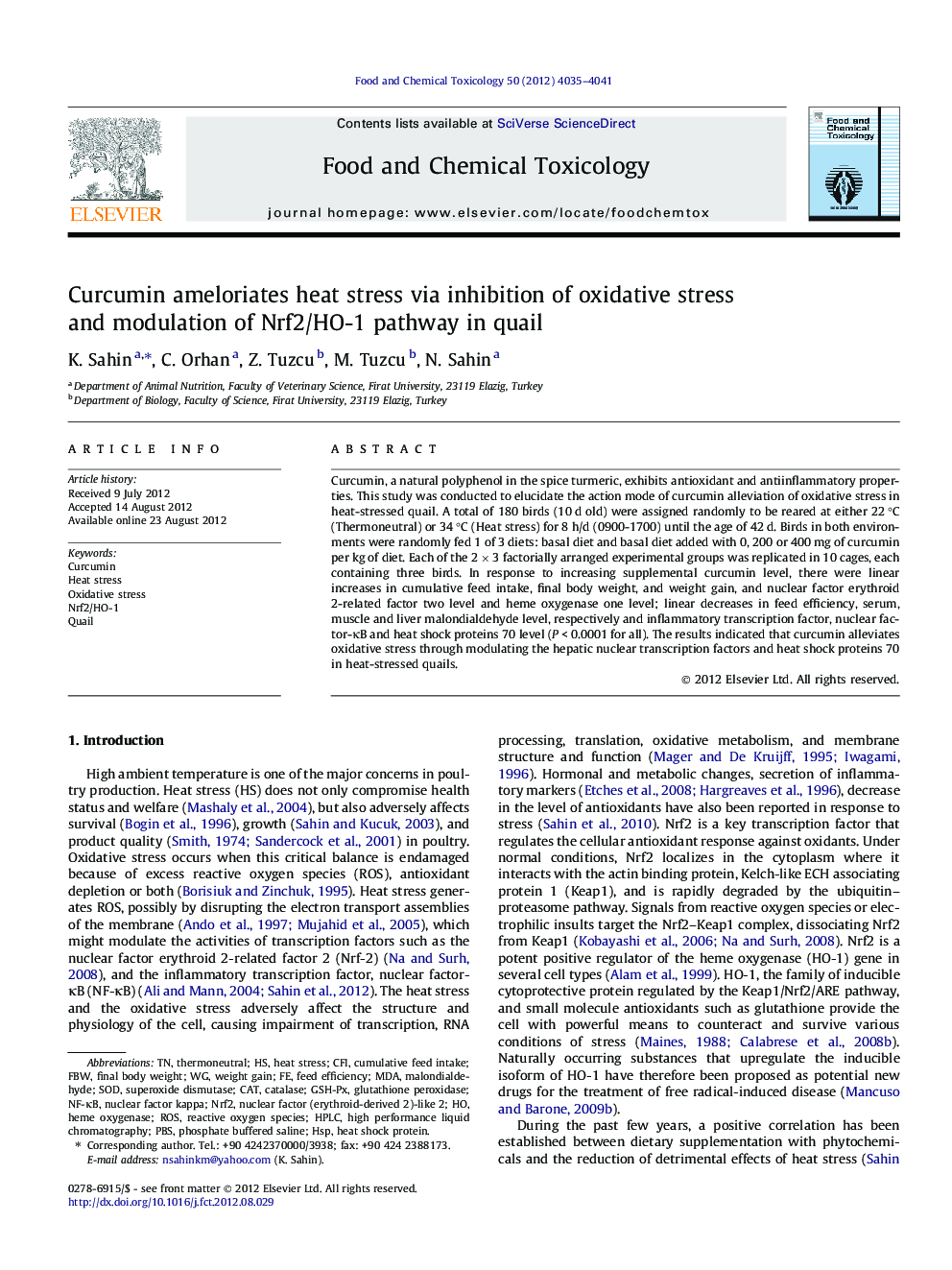| Article ID | Journal | Published Year | Pages | File Type |
|---|---|---|---|---|
| 5852316 | Food and Chemical Toxicology | 2012 | 7 Pages |
Curcumin, a natural polyphenol in the spice turmeric, exhibits antioxidant and antiinflammatory properties. This study was conducted to elucidate the action mode of curcumin alleviation of oxidative stress in heat-stressed quail. A total of 180 birds (10 d old) were assigned randomly to be reared at either 22 °C (Thermoneutral) or 34 °C (Heat stress) for 8 h/d (0900-1700) until the age of 42 d. Birds in both environments were randomly fed 1 of 3 diets: basal diet and basal diet added with 0, 200 or 400 mg of curcumin per kg of diet. Each of the 2 Ã 3 factorially arranged experimental groups was replicated in 10 cages, each containing three birds. In response to increasing supplemental curcumin level, there were linear increases in cumulative feed intake, final body weight, and weight gain, and nuclear factor erythroid 2-related factor two level and heme oxygenase one level; linear decreases in feed efficiency, serum, muscle and liver malondialdehyde level, respectively and inflammatory transcription factor, nuclear factor-κB and heat shock proteins 70 level (P < 0.0001 for all). The results indicated that curcumin alleviates oxidative stress through modulating the hepatic nuclear transcription factors and heat shock proteins 70 in heat-stressed quails.
⺠High ambient temperature causes oxidative stress in quail. ⺠Curcumin is a natural antioxidant polyphenol in turmeric. ⺠Curcumin is a potential activator of the Nrf2/HO-1-dependent pathway. ⺠Curcumin decreased levels of NF-κB and Hsp70 in quail. ⺠Curcumin increased performance and antioxidant activities in quail.
